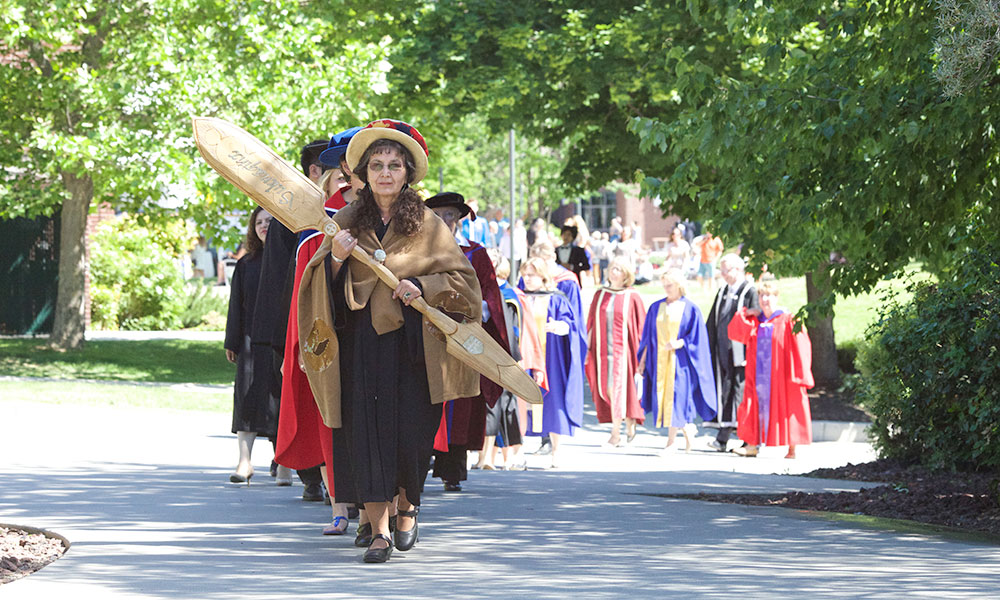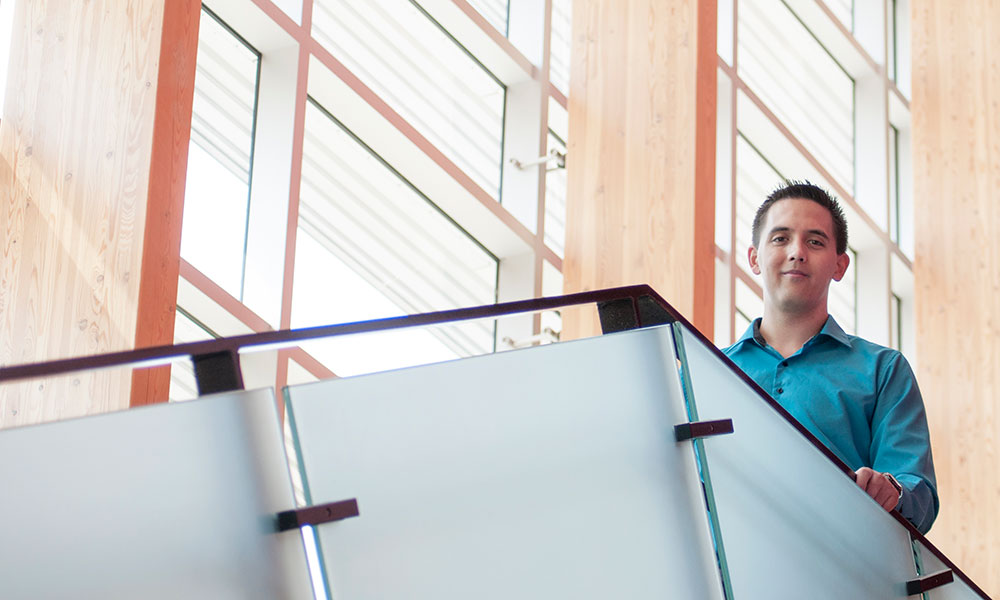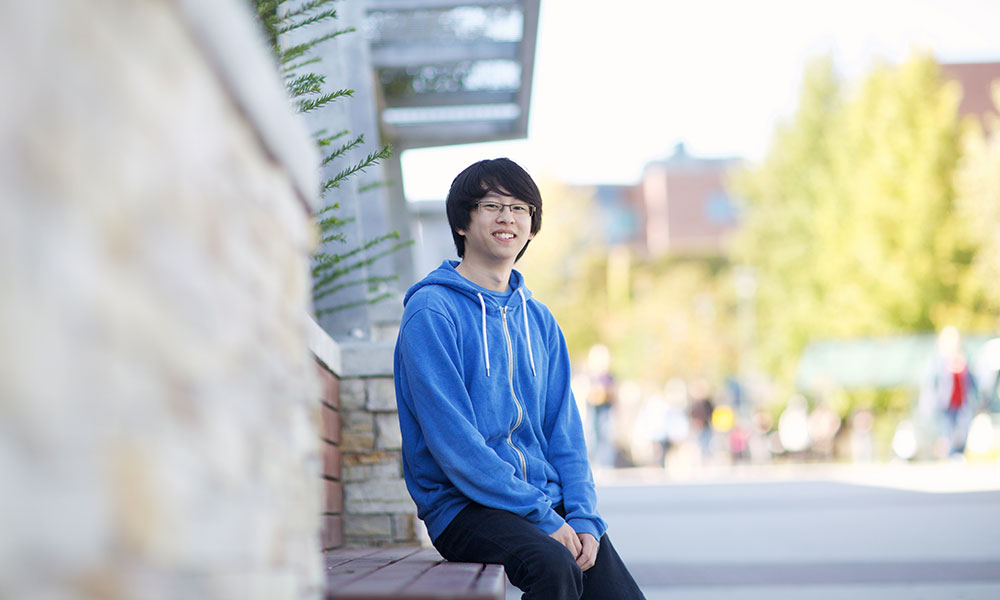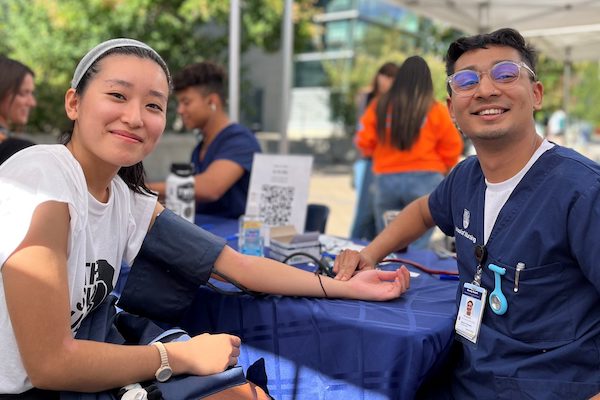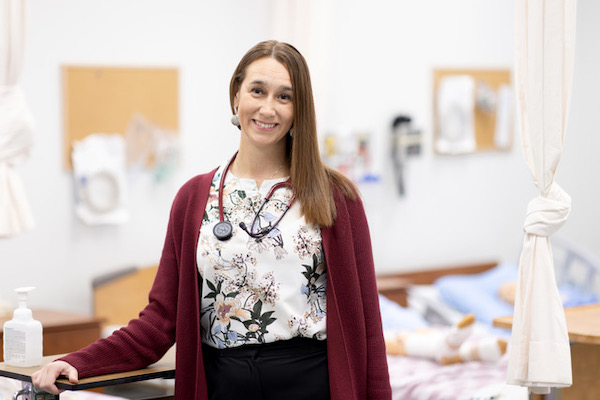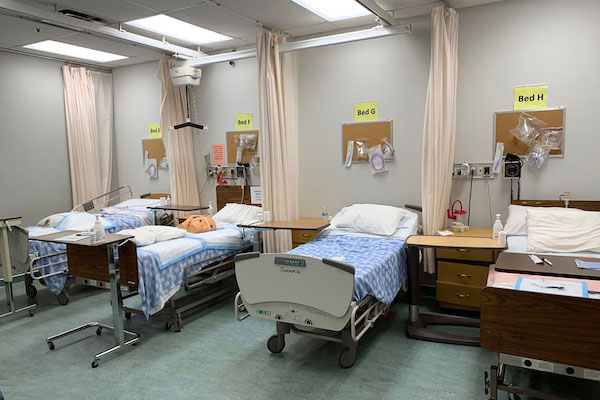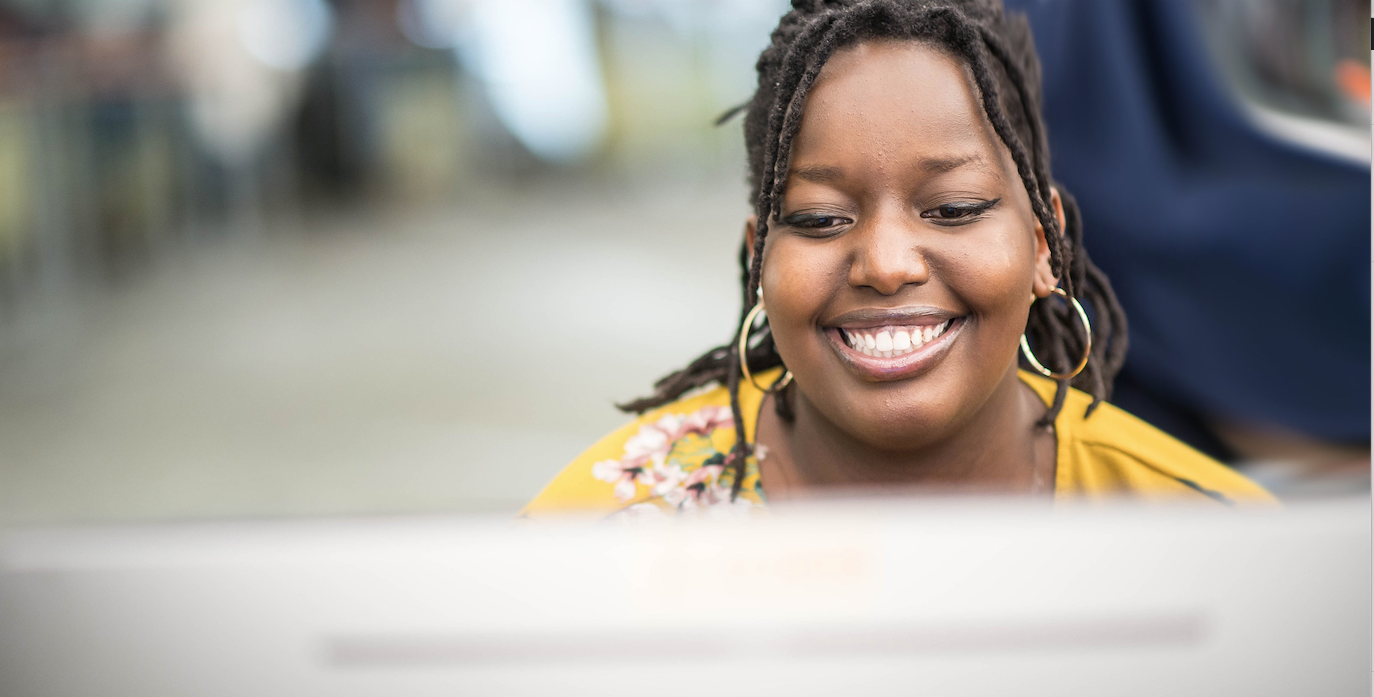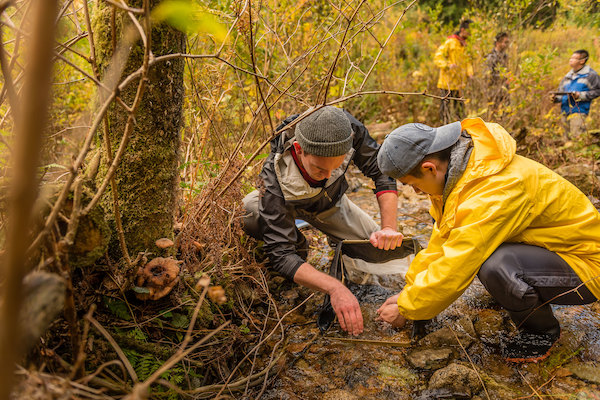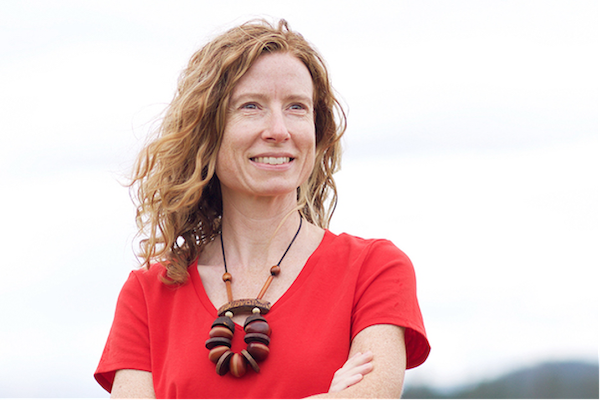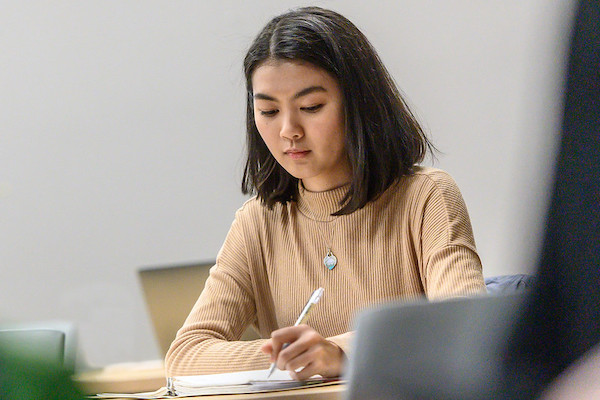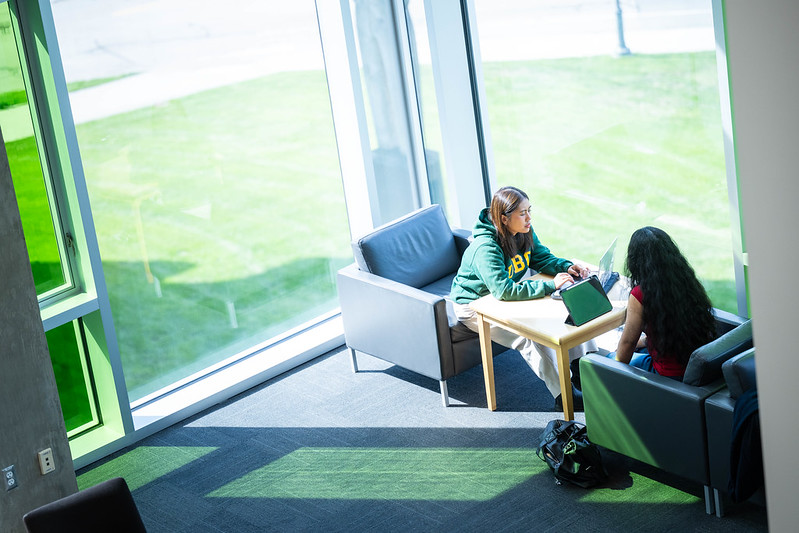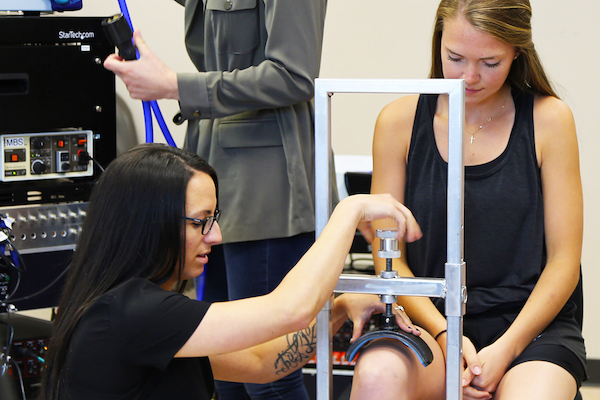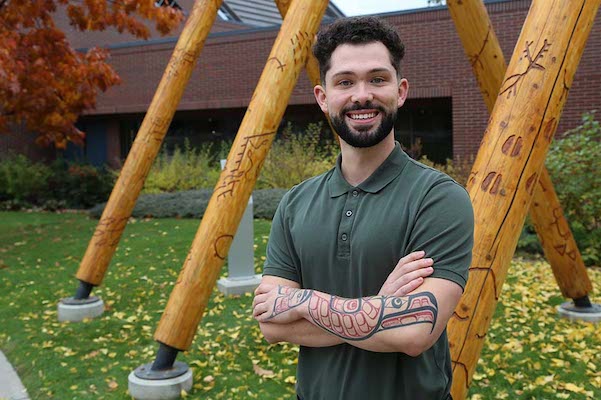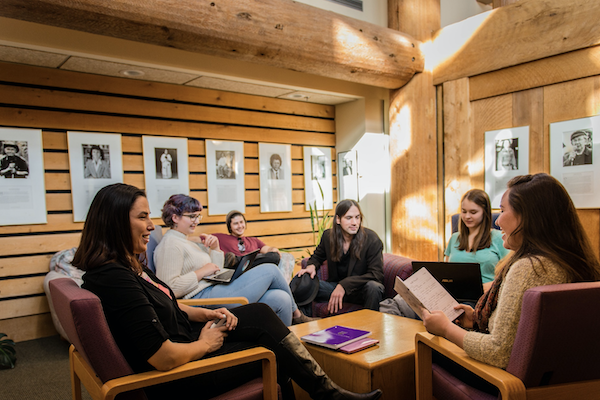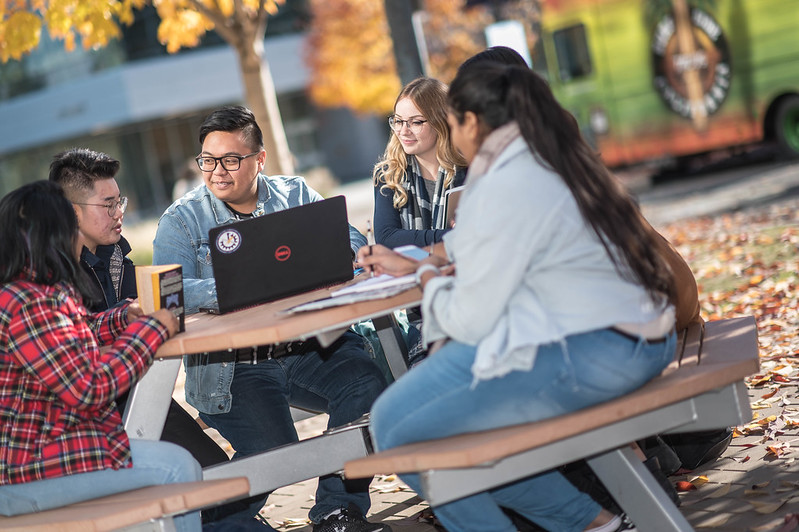
Are you looking for a degree that will give you a broad range of knowledge and teach you how to think critically, be creative, problem solve, and communicate effectively?
UBC Okanagan’s Bachelor of Arts degree is a flexible, innovative arts degree designed for the 21st century, taught by award-winning instructors. The degree integrates foundational knowledge with interdisciplinary opportunities in social justice, sustainability and Indigenous content, and prepares you for global citizenship.
What you learn in Arts at UBC Okanagan
You can choose from more than 20 majors in the Bachelor of Arts at UBC’s Okanagan campus. Students start their degree taking foundational courses, and at the end of year one or two can choose a program to major in to complete their degree.
Some of the program options include:
Indigenous Studies
In the Indigenous Studies program, you will learn about Indigenous governance, the justice system, land claims, traditional ecological knowledge, the protection of heritage, Indigenous theory, and more.
Indigenous Studies will give you the opportunity to design research projects relevant and respectful to an Indigenous community or agency and implement the project working on-site in that community or agency.
Graduates leave with the skills to pursue a career in government, Indigenous Peoples organizations, Indigenous leadership roles, and resource management.
Find out what you can do with a degree in Indigenous Studies after you graduate
Faculty Spotlight
Meet Jeannette Armstrong, an Associate Professor in the Indigenous Studies program, who is also an award-winning writer, activist, novelist and poet. Her research into Indigenous philosophies and Okanagan Syilx thought and environmental ethics has been recognized locally and globally.
Philosophy, Politics, and Economics
The Philosophy, Politics and Economics program brings together three of the most important fields in forming our understanding of society. This degree uniquely blends these three fields to allow you to form a critical understanding and interpretation of the world.
You’ll explore logic, ethics and how to question critically; the interests and institutions that form public policies and the rules by which we are governed; and how we make decisions as individuals and groups in our increasingly global world market.
With a Philosophy, Politics and Economics degree you can pursue a career in business or government, or undertake studies in law, business, commerce, journalism, social work, education, or public administration.
Find out what you can do with a degree in Philosophy, Politics, and Economics after you graduate
Student Spotlight
Meet Kevin Ilomin, an alum of the Philosophy, Politics and Economics (PPE) program who believes that the broad, interdisciplinary approach to learning is what makes the PPE program at UBC’s Okanagan campus one of the best in Canada.
Gender, Women and Sexuality Studies
Learn about the world and our place in it through a deeper understanding of sexuality, femininity, embodiment and social justice. This dynamic and interdisciplinary program draws from across the humanities and social sciences and focuses on the historical and contemporary role of gender in global cultures. This program encourages you to engage in critical thought, challenge stereotypes, and contribute to social change. Courses draw on theoretical analysis, research, history, and literary sources to examine gender issues and the experiences of women.
Find out what you can do with a degree in Gender, Women and Sexuality Studies
Computer Science
Discover how to use your artistic creativity with technology in UBC Okanagan’s Computer Science BA program. Different from a BSc Computer Science degree, this program gives you the opportunity to complement your Arts degree with computer science courses.
The program appeals to students who are interested in both computer science and visual arts (game or website design), psychology (programming for cognitive science, psychology, and human and computer interactions), English (technical writing), languages (automation of text translation), philosophy (computer ethics), or law (information security and privacy, and forensics).
You will develop the skills and knowledge to pursue a variety of in-demand careers, including as an application developer, game designer, desktop publisher, animator, or quality control specialist.
Find out what you can do with a BA in Computer Science
Student Spotlight
Meet Eric Huang, an undergraduate student in the Computer Science program who says that it has given him opportunities that would be hard to come by anywhere else.
Economics
Economics will change the way you look at the world, increase your understanding of fundamental human behaviour, and improve your reasoning, problem solving, and decision-making abilities. Economics is the study of how people, institutions, and nations manage resources such as time, money, and materials. In this program, you will increase your skills in deductive reasoning, abstract and critical thinking, and your understanding of the historical, cultural, and social context of economic institutions, policies, and events. Economists study how behaviour reflects and responds to incentives.
Find out what you can do with a degree in Economics
Creative writing
The Creative Writing program on UBC’s Okanagan campus provides you with an opportunity to study literature and literary criticism, and to bring what you learn from these studies into your own work. Course options include poetry, creative non-fiction, short fiction, novels, playwriting, screenplay, writing with media, editing and publishing, and community learning. The program fosters a supportive community of faculty and peers in which you’ll find encouragement to explore new genres and writing forms.
You’ll be actively involved in writing projects, chapbook production, magazine editing, new media work, student anthology production, and community learning projects. You’ll also have the chance to build a varied body of work for your own portfolio – all while studying under a faculty of award-winning writers dedicated to helping you experiment and grow as a writer.
Find out what you can do with a degree in Creative Writing
Why choose Arts at UBC Okanagan?
As a student in the Bachelor of Arts at UBC Okanagan, you’ll have options to tailor your degree, including a sustainability component, a digital literacy component, and a diversity and cultures component.
Because UBC Okanagan is a smaller campus, you can build close relationships with fellow students in small-group programs, and connect with professors early in your academic career.
You’ll graduate with transferable skills that you can apply to many different jobs.
